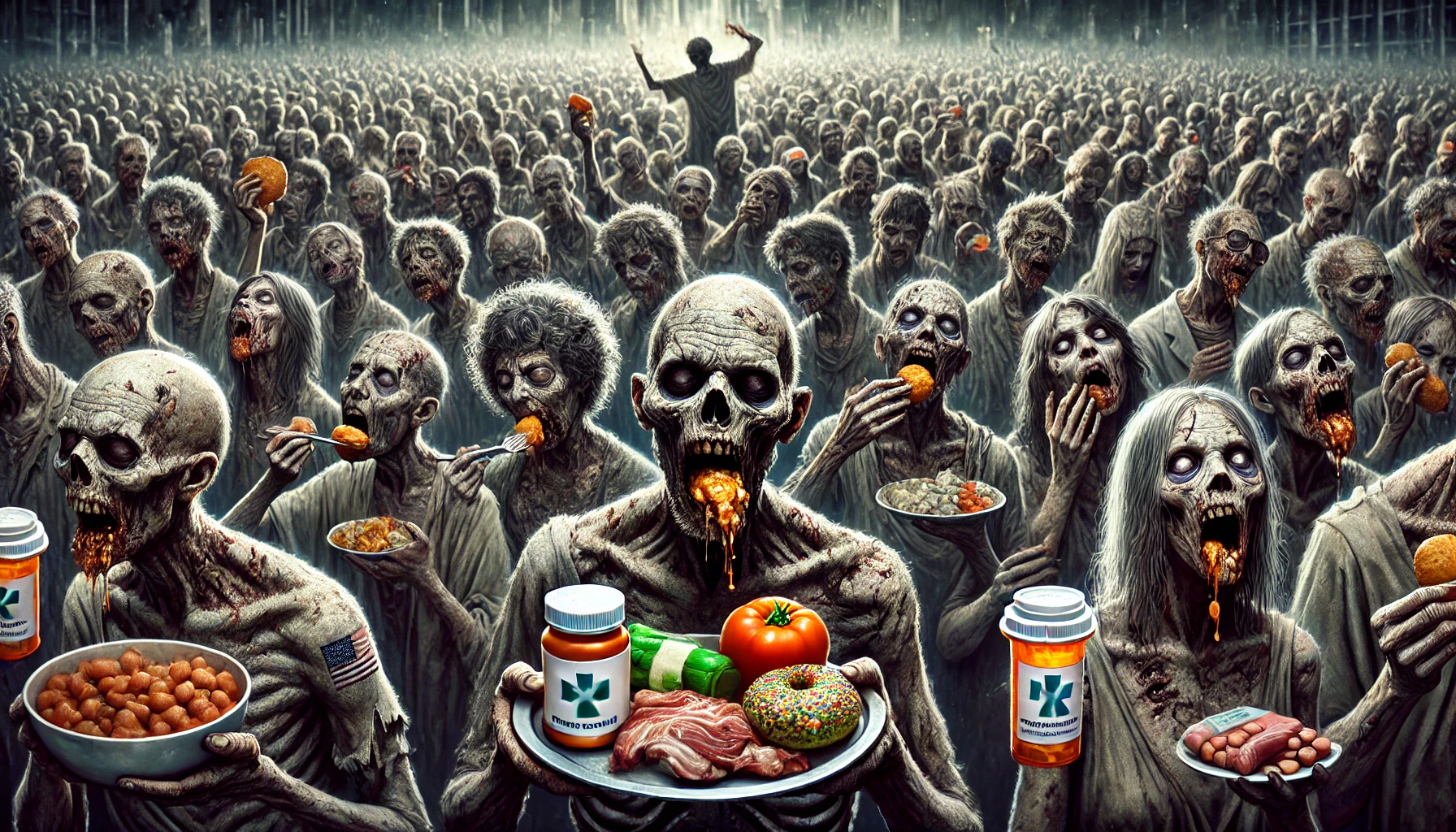By Jason Meyers
Cancer killed my mother and her 6 brothers and sisters. As an investment banker, I took many companies public including Alexion Pharmaceuticals and Medarex, Inc., as lead banker so as far as I am concerned the appointment of RFKJR to lead HHS completes Team Avengers under Trump 2.0.
The prospect of splitting the Food and Drug Administration (FDA) into two distinct agencies—one focused on food, the other on drugs—has ignited hope for a long-awaited crackdown on Big Pharma’s stranglehold over America’s health. By appointing Robert F. Kennedy Jr. to lead HHS, the Trump Administration is taking aim at the pervasive regulatory capture by pharmaceutical giants that has plagued the agency for years. Advocates say this bold move could eliminate conflicts of interest, slash billions in unnecessary costs—all while restoring public trust in America’s health system.
Decades of Regulatory Capture and Corporate Influence
For decades, the FDA has operated under the shadow of Big Pharma’s influence, with pharmaceutical companies leveraging their power to shape policies and regulatory processes to their advantage. Critics argue that the deep-seated ties between industry leaders and agency insiders have led to a system rife with conflicts of interest, where public safety sometimes takes a back seat to profit motives. The FDA has been manipulated by pharmaceutical companies with the resources to influence key decision-makers within the agency, leaving smaller innovators at a disadvantage and patients waiting longer for life-saving treatments.
An FDA split would help dismantle a massive referral system between producers of food that makes people sick and drug makers who profit from treating the symptoms. By dividing the FDA, RFK would reduce Big Pharma’s outsized influence.
Robert F. Kennedy Jr.: A Watchdog for the People
As an outspoken advocate for public health transparency, Robert F. Kennedy Jr. has spent years exposing corporate malfeasance, and his appointment signals a major shift in how the government approaches regulation. With Kennedy at the helm, HHS will have a leader focused on protecting the public from conflicts of interest that have made America sick. His dedication to health reform and willingness to challenge corporate interests make him the ideal candidate to cure the agency and “Make America Healthy Again”.
Cost-Cutting with Elon, Vivek and DOGE
One of the most immediate benefits of separating food and drug oversight into two agencies is the potential for substantial cost savings. By dividing these responsibilities, bureaucracy can be eliminated. Currently, the FDA’s sprawling scope covers everything from drug approvals to food safety recalls, creating a web of procedures that are neither fast nor cheap. Critics argue that this complex structure is a breeding ground for corruption, as large corporations exploit the system to delay generic drugs, maintain monopolies, and increase prices.
Under a bifurcated system, the drug-focused agency will be able to fast-track life-saving cures instead of expensive treatments. By cutting down on administrative bloat and regulatory overlap, the split could save billions that currently end up in Big Pharma’s pockets through complex lobbying schemes, delayed generics, and monopolistic practices.
According to a report published by the IQVIA Institute U.S. spending on oncology has risen from $65Bn in 2019 to $99Bn in 2023, representing 45% of global spending, and is expected to grow to nearly $180Bn in 2028.
Curing Conflicts of Interest
A specialized Drug Agency under Kennedy’s leadership promises to uproot the web of conflicts of interest that has undermined the FDA’s credibility. In its current form, the FDA’s dual mandate allows food and drug industries to compete for regulatory priorities, with well-funded pharmaceutical companies often winning out. By creating an agency solely dedicated to drug oversight, the government can finally separate the interests of Big Pharma from those of the food industry, reducing opportunities for undue influence.
Kennedy’s history of advocating for independent research and consumer rights aligns with the goals of the new Drug Agency. He is expected to prioritize transparency measures that would require the agency to disclose any industry funding or corporate affiliations involved in the approval process. This increased transparency will limit Big Pharma’s ability to sway regulatory decisions and help create a fairer, more trustworthy system for patients and consumers. By fostering accountability and integrity, the split could mark a watershed moment in reversing regulatory capture and restoring faith in America’s health institutions.
Restoring Trust and Reshaping Public Health
Public trust in the FDA has suffered in recent years, with concerns about corporate influence and drug safety at an all-time high. With Kennedy’s track record of exposing hidden industry practices, his appointment signals a renewed commitment to transparency and accountability. The creation of two agencies with clear, independent missions can allow each to build trust with the public based on a record of impartiality and integrity.
If successful, this historic restructuring could set a precedent for reform in other sectors where regulatory capture has eroded public trust. RFK’s appointment marks a rare opportunity to dismantle the corporate grip on drug regulation, ushering in an era of reform that Makes America Healthy Again. MAHA
About the author
Jason Meyers is the lead architect of Pacioli.ai, the worlds first web3 disclosure infrastructure and AI based DePIN for external validation. Jason took many companies public including Alexion Pharmaceuticals which was acquired by AstraZeneca for USD$40 Billion. He strongly believes that the re-election of Donald Trump and the appointment of Bobby Kennedy Jr. as HHS Secretary will Make America Healthy Again.
Connect with Jason on LinkedIn. Follow on Twitter

